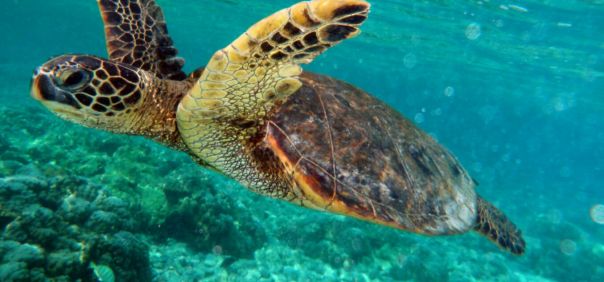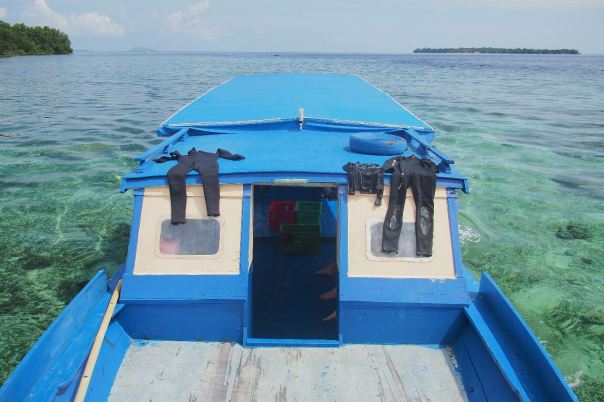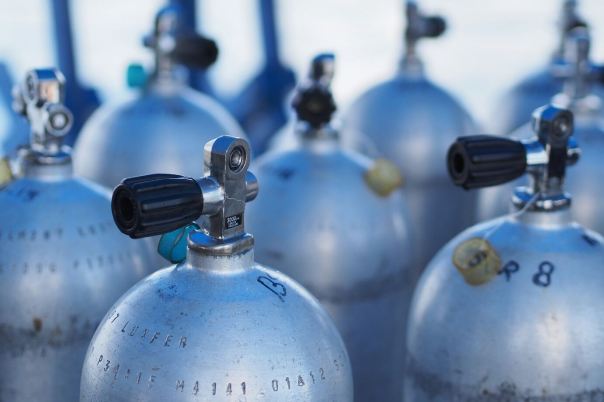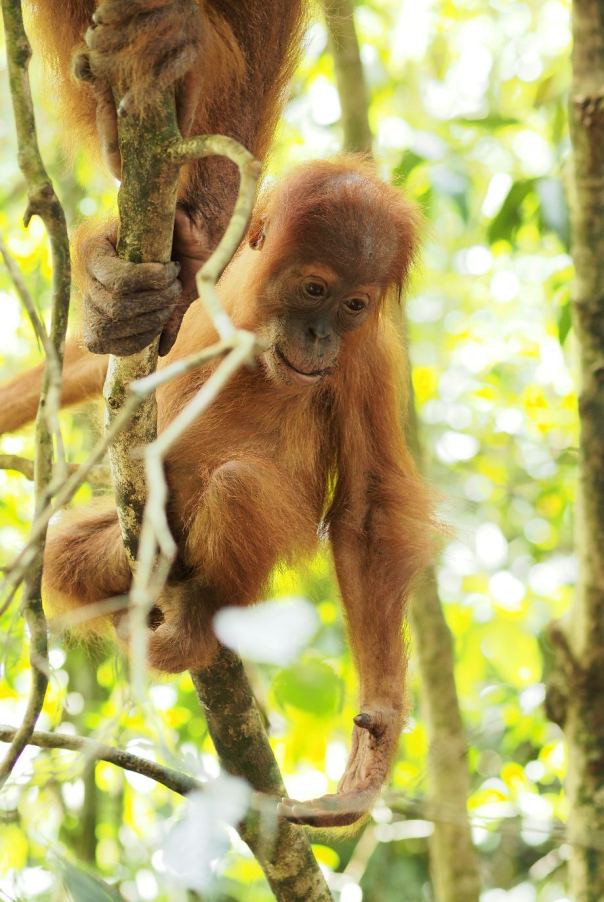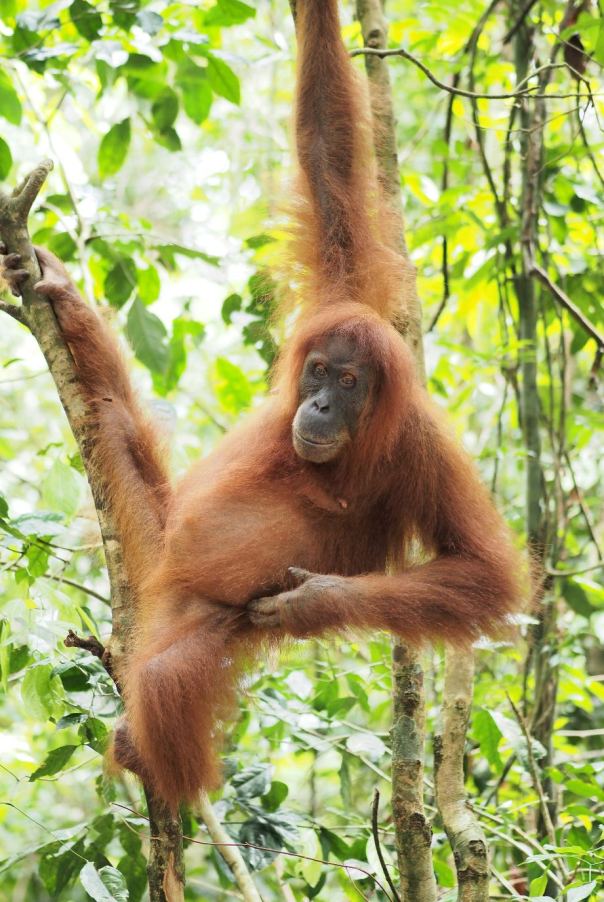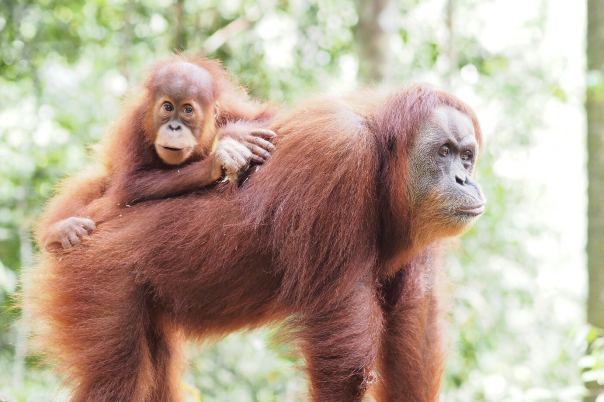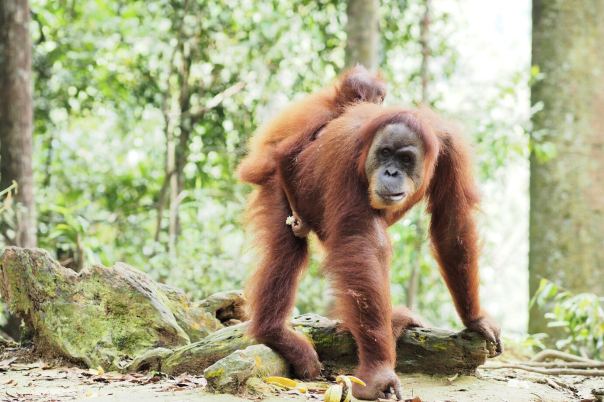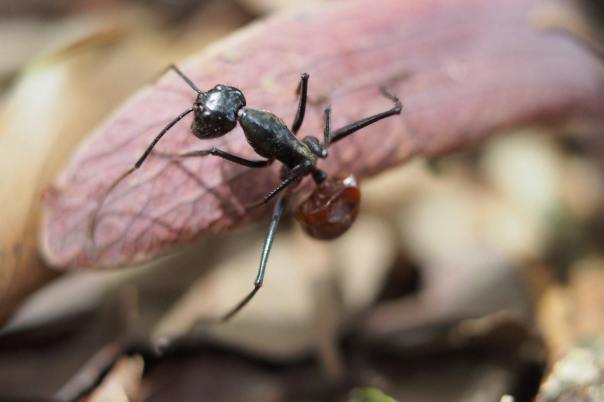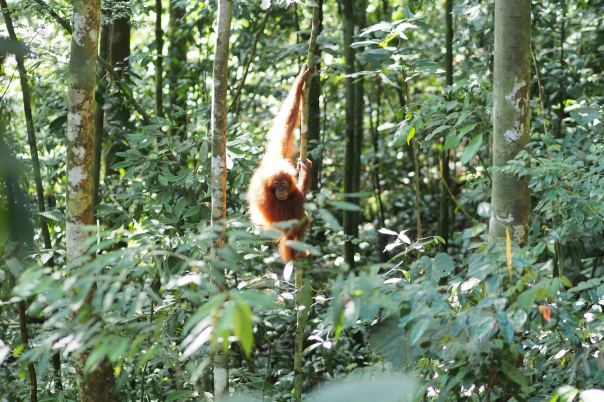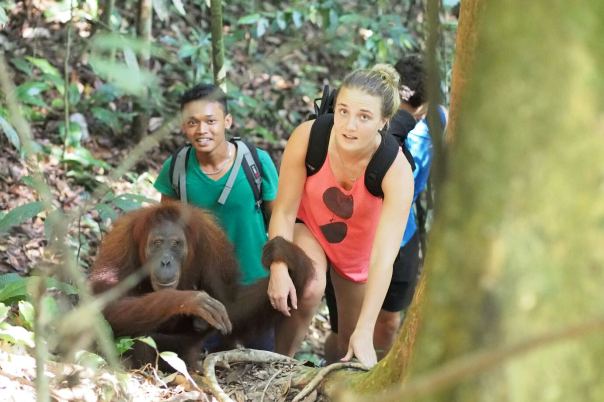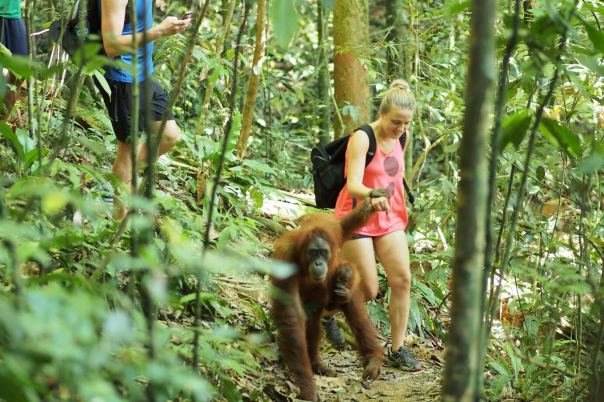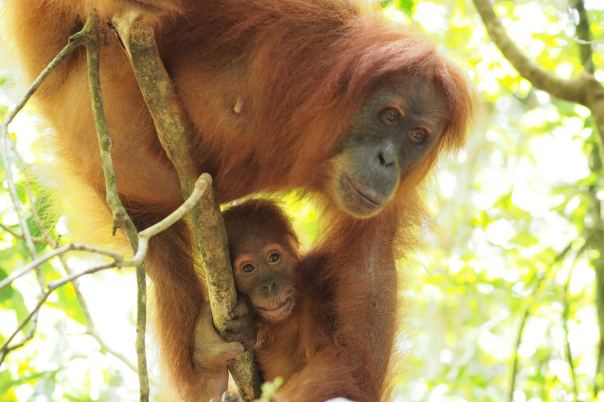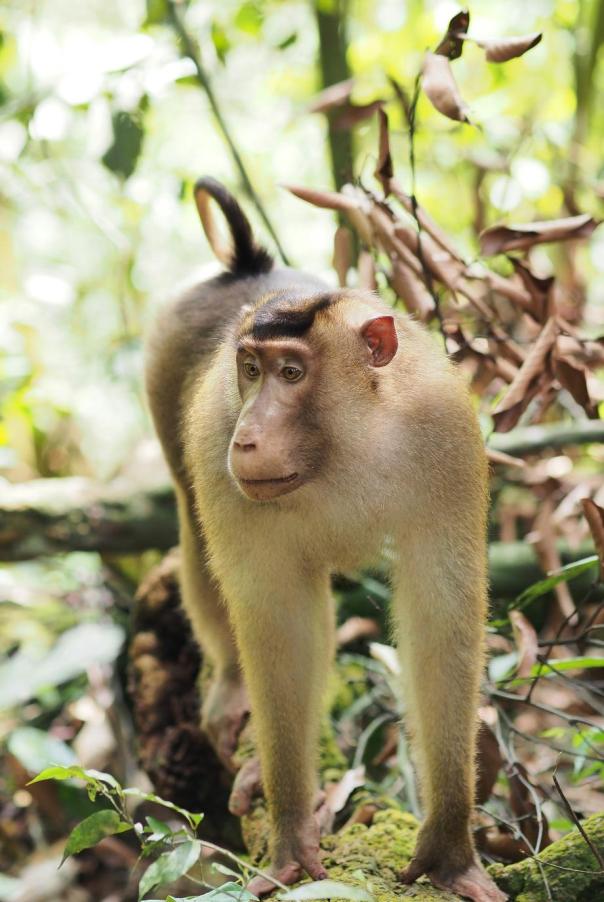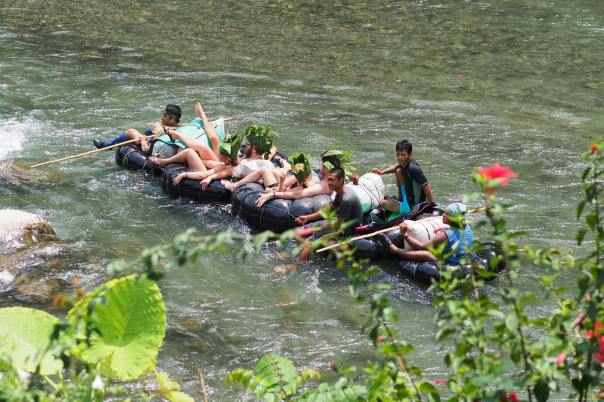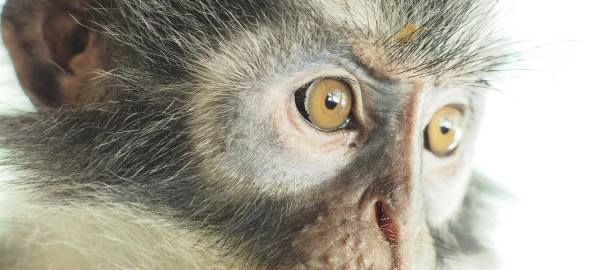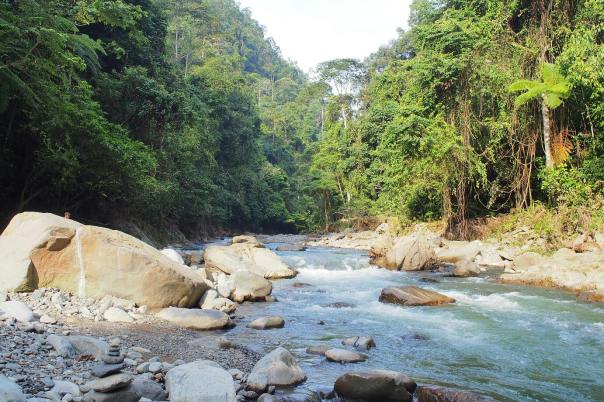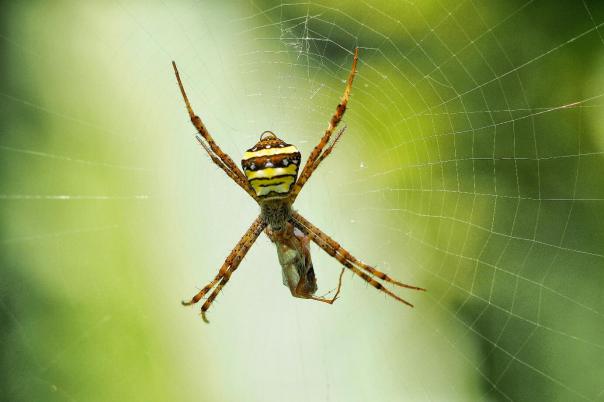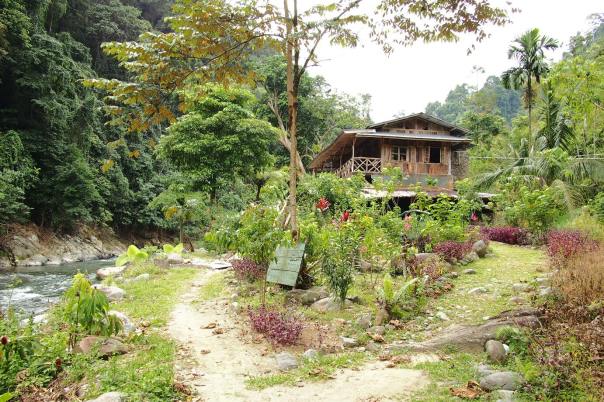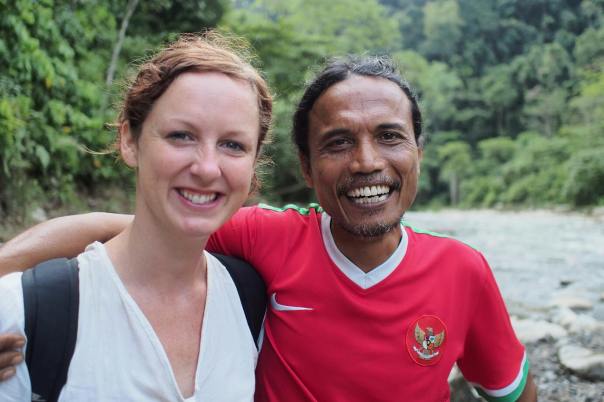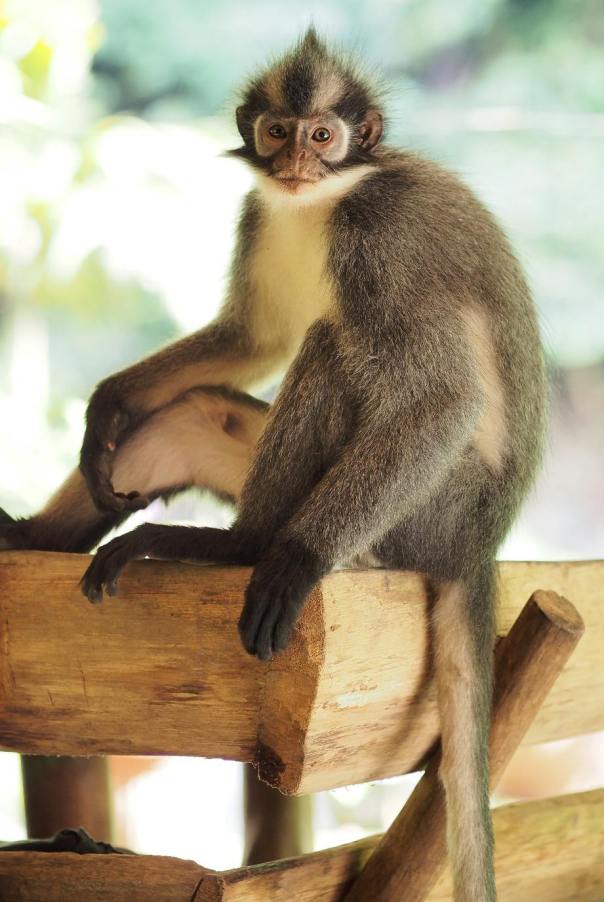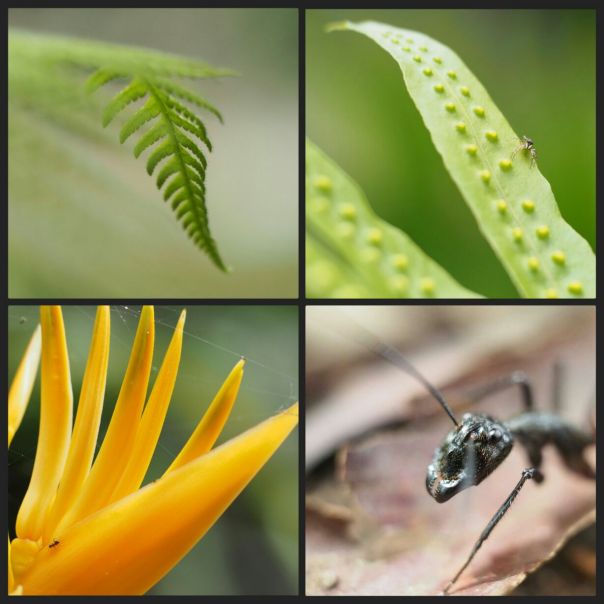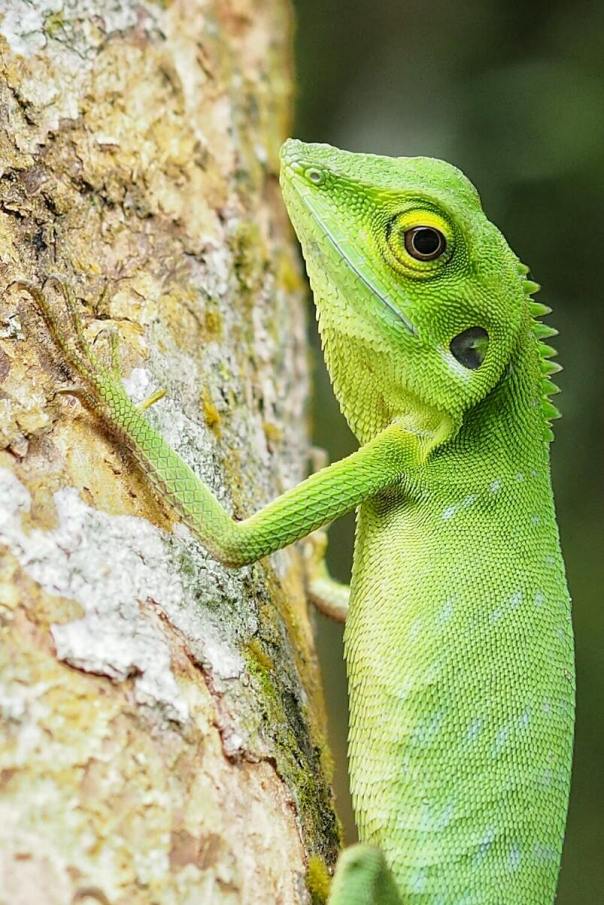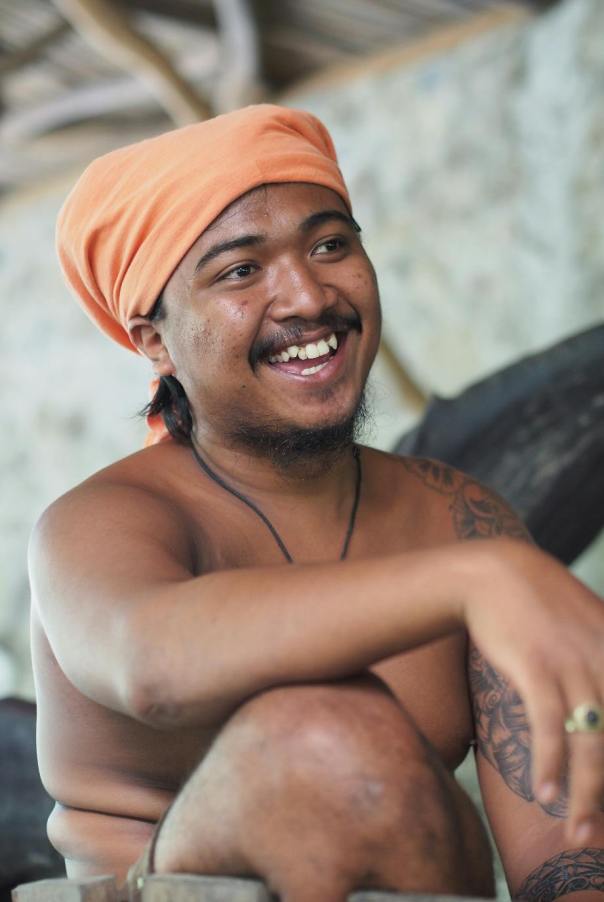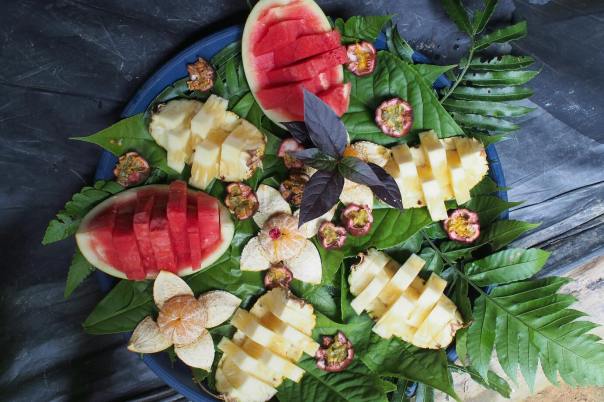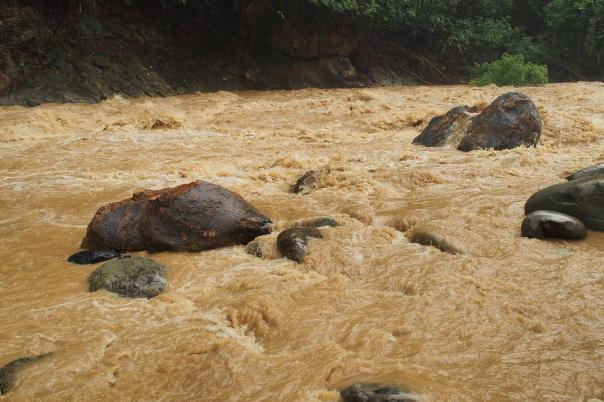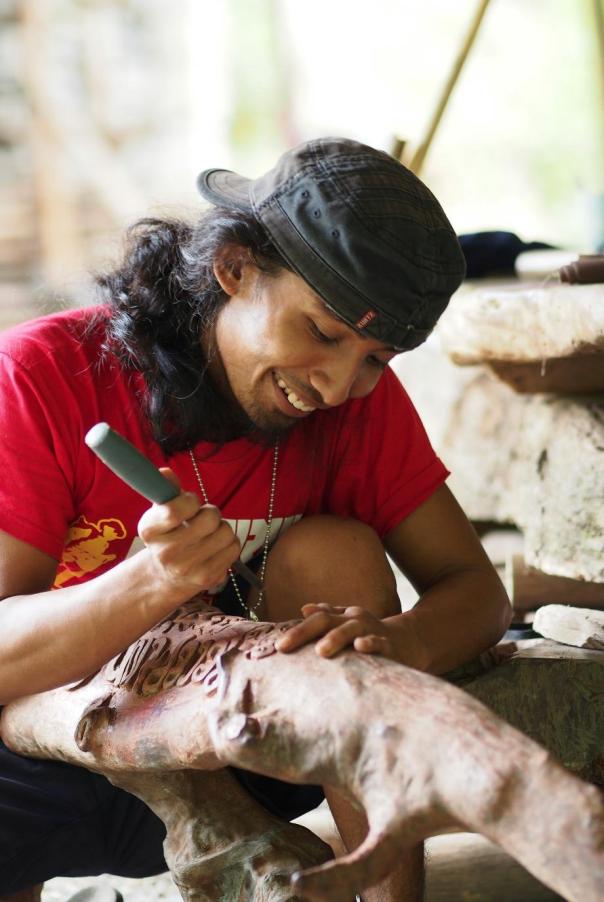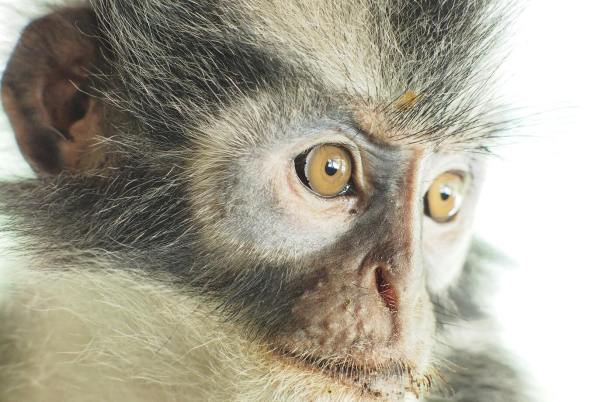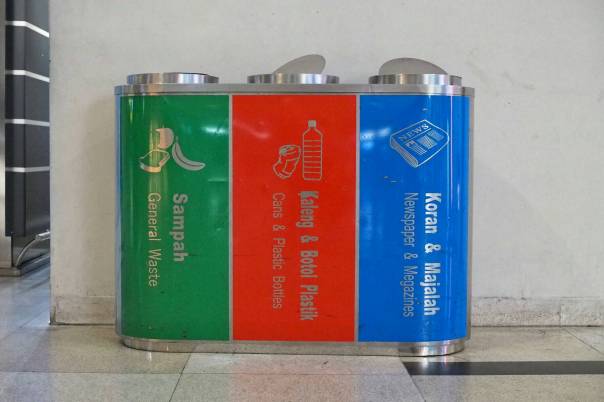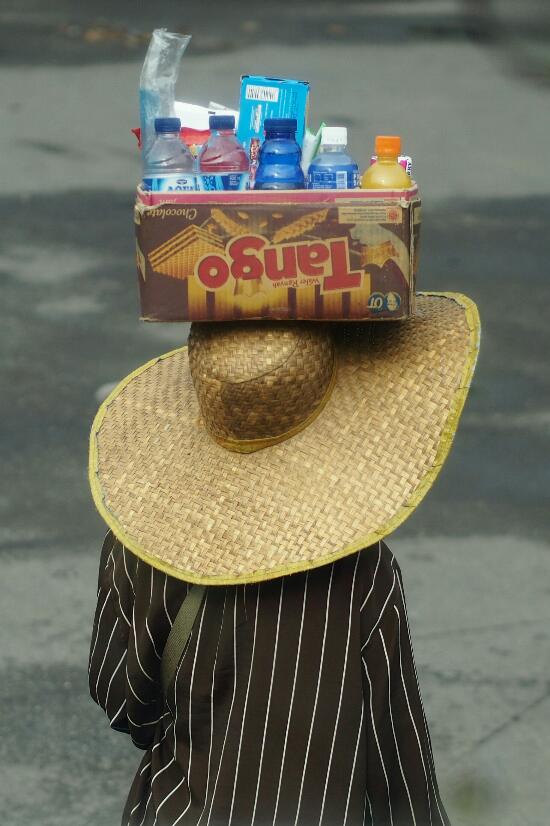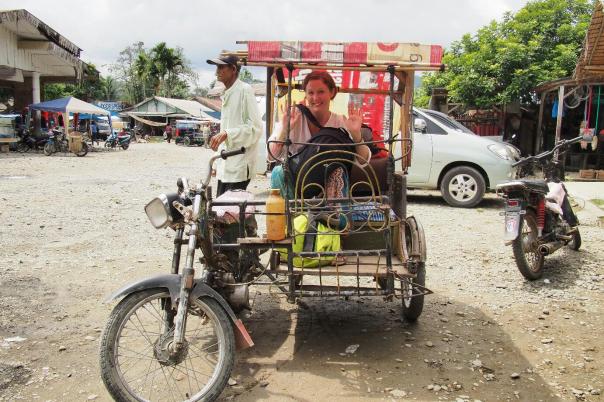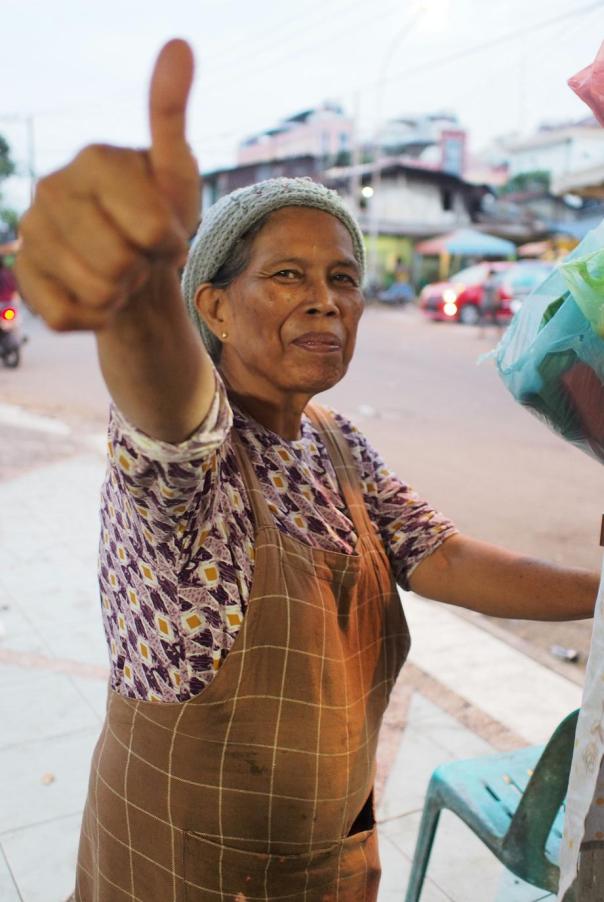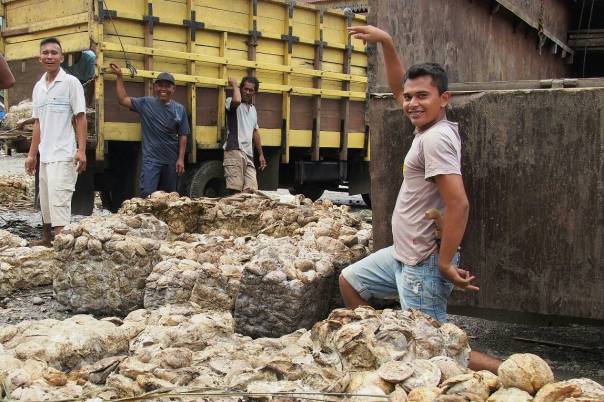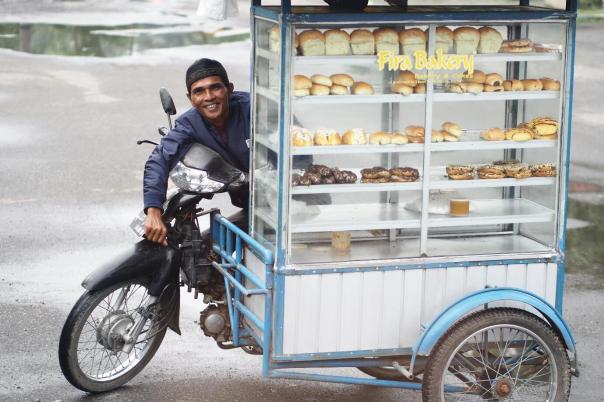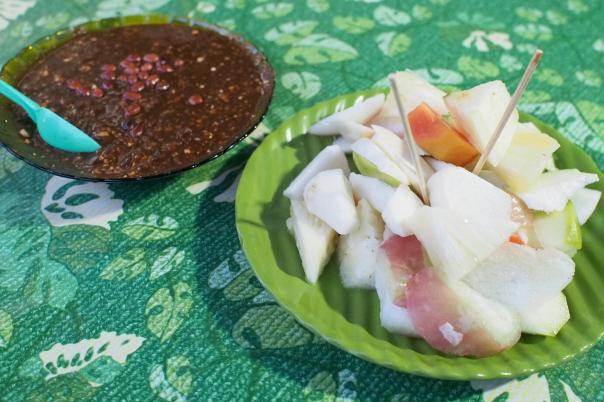Under the sea, under the sea, darlin’ it’s better down where it’s wetter, take it from me…
(Written by Steph, photos courtesey of a friend with a GoPro, some downloads & some Nick’s)
Spluttering and exhausted, we finally dragged ourselves out of the water and onto the pier only to be greeted by umpteen mobile phones pointing at us – loaded and ready to shoot. Oblivious to our ordeal, the crowd of locals weren’t taking “Thank god they made it” photos – they were rather more interested in having a snap with a tourist while they laughed and joked and barbecued their fish on the beach. Ahh, the simple life.
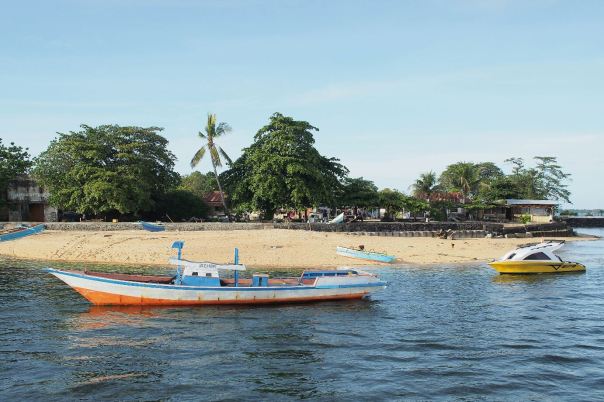
We had come to the island of Bunaken, in a far flung region of Indonesia, for Nick to do his Open Water Padi course. That’s diving to you and me. My previous two pneumothorax (a collapsed lung for those of you that didn’t grow up watching Casualty on BBC1) ensured that this was not to be the double act we had grown so used to.

Nick, in a fit of romance, or possibly guilt for abandoning me for the deep seas, had mentioned that this was our honeymoon in his email to the place we were staying. Could we reasonably still class it as that 6 months on? Well, there’s nothing “reasonable” about travelling for 6 months, anyway. This reminds me of a story told to us by a couple we met travelling of a time they went to Mexico and pretended it was their honeymoon. Seven days of being pursued by the band, who assumed that they would like to be serenaded at every available opportunity, followed. Needless to say, they never did get married.
“Your name is Steph? Ohhhh”
There was no fanfare when we arrived at Bunaken Sea Garden Resort, but there was a beautiful smiling girl to greet us. She introduced herself, as did I. She looked confused. People in Asia often had difficulty pronouncing my name, but her reaction was odd. It wasn’t long before we went in our room and discovered why. There on the bed was a big heart drawn out with flower petals. And our names – Nick and Irvine. Apparently Nick loves himself.
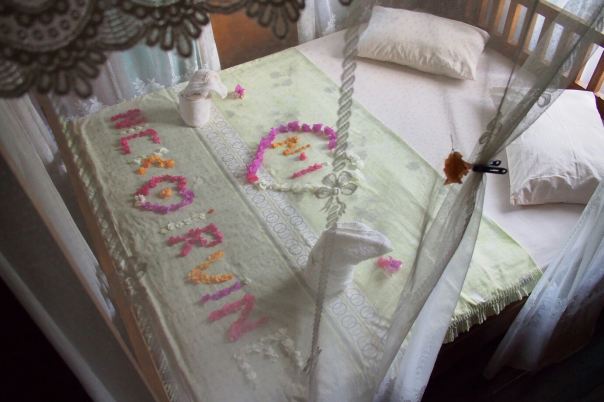
Rather than taking the plunge on the first day, Nick decided he would delay the diving for another day so that be could spend time snorkelling with me. We had heard that no more than 100 metres out from our bay lay the most amazing coral, but that we should go out at high tide – that couldn’t have been more true.
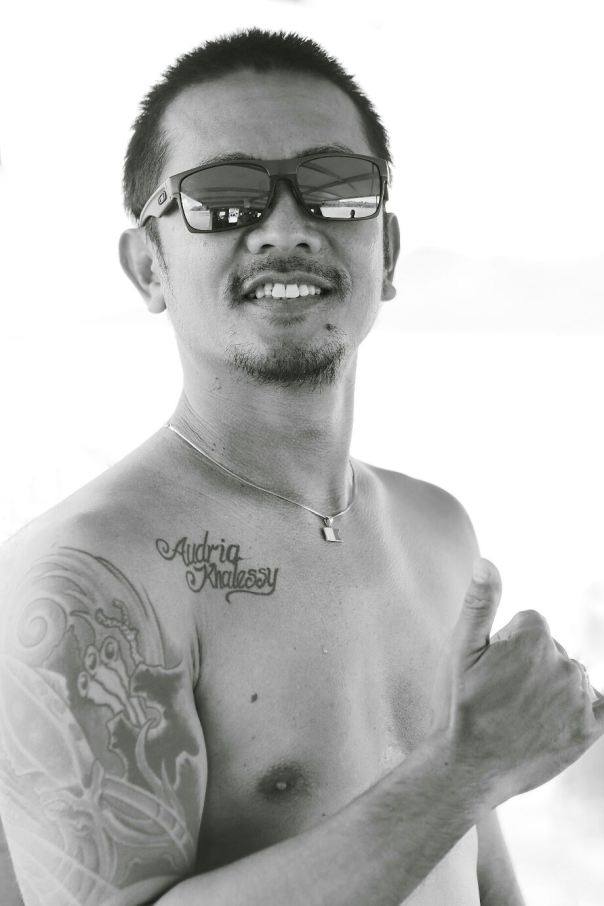
Flippers on, we headed out. Now, flippers are great when swimming in strong currents, and they also provide protection against Triggerfish, should they decide to attack, but try walking in the blinking things. Not only was the tide still low, but in order to get out, you had to cross a huge section of mangroves, negotiating broken trunks piercing the water’s surface. However, we had also heard that stingrays sometimes settle on the sea bed here, so we would have to be careful not to tread on one. Easier said than done with water murky from the mangroves. Swimming out in water only two feet deep meant we had to use very little movement to avoid stirring up the mud further and scratching our bellies on these alien looking forms below us. Looking ahead through our masks all we could see was half a metre of turbid water, but post minor meltdown (mine), Nick calmed me down and I agreed we should swim out just a bit further.
It was lucky that Nick has the patience of a saint or we might never have made it those extra few metres. Suddenly the water cleared up and we started to see starfish and spikey sea urchins everywhere. Barely half a metre below us was the most stunning coral – we would have to be extra careful not to kick it as we manoeurved through. In Surin, we had been privy to some extraordinary animals, but unfortunately, due to the boxing day 2006 tsunami and perhaps global warming, much of the coral had been bleached. The algae living inside the coral can only do so at a certain temperature, so when the water temperature rises, the algae is expelled. This leaves the coral colourless, and effectively dead. Here in Bunaken, we were surrounded by blues, greens and pinks swaying back and forth with the pull of the tides. It was quite something to feel how alive it was.

Finally we managed to cross the shallow corals and out of the blue we came across what Bunaken is famous for – “The Wall”. Right next to the warm shallow corals was a drop-off so huge, you suddenly felt like a toy in a giant paddling pool. Its enormity was overwhelming: a wall 40 metres deep. Still, it was a relief to be able to come up to a vertical position. Treading water in the freezing depths, we reviewed where we were in relation to the shore. We must keep our eye on the currents here.

When skin meets coral
Almost as soon as we put our masks under, we saw what we had yet to tick off in Surin – a turtle! The moment was short-lived as it ducked under a rock embedded in the wall. It was obviously a popular hangout as the turtle displaced another new animal for us – a blue spotted sting ray. We could hardly believe our luck.
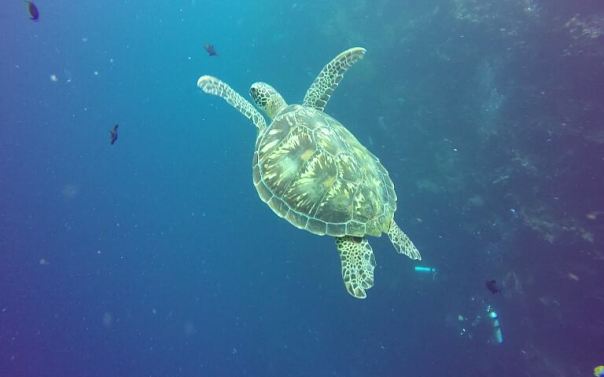
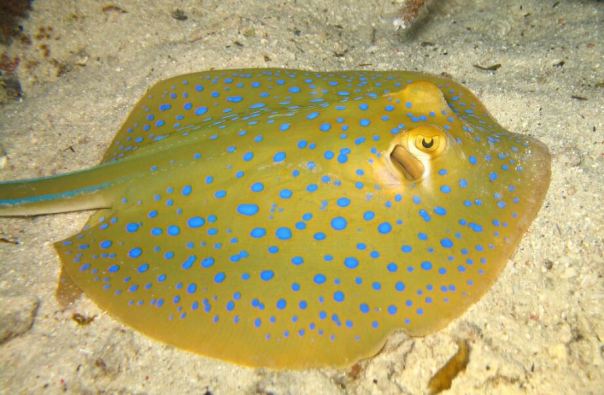
With no watches, we looked at the sun’s position. We must have passed hours with our heads down, distracted by this new world of discovery. Out in the depth of the ocean, we had neglected to observe the tide. Shit. We attempted to swim to shore, carefully navigating gaps in the coral boulders where the water was deeper, but we were in danger of being pulled into the sharp protrusions that surrounded us. We didn’t get far before we had to abandon that plan, for fear of damaging either the marine life or ourselves. I had already experienced what happens when skin meets coral, and it wasn’t pretty.

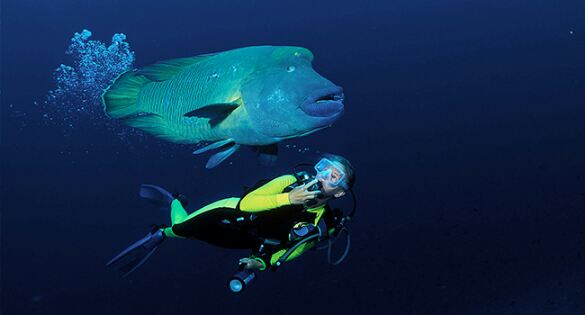
Plan B was to swim along the drop-off to a pier we had spotted in the distance. That way we would be in deep water, swimming parallel to the shore, but we should be able to get to safety along the pier. Just to get there…
To begin with, we enjoyed the continuing underwater adventure – spotting yellow Trumpet fish we had never seen, steering clear of the Triggerfish we now knew were well worth avoiding, but the pier didn’t seem to be getting any closer, and the current was getting stronger.
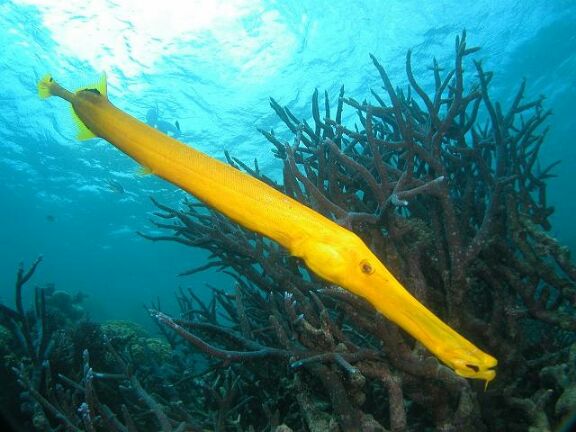
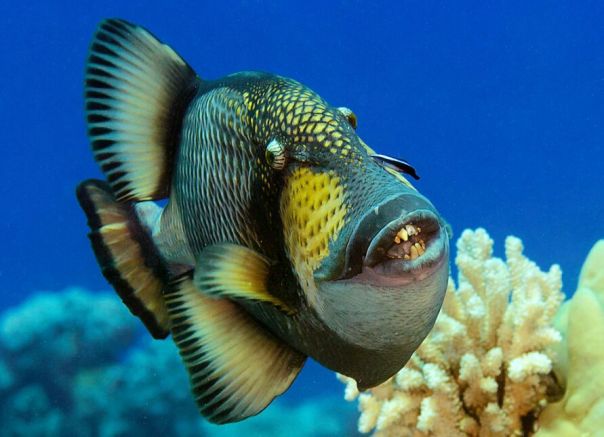
Battling against the flow, and convincing myself that the best course of action was just to keep swimming strongly, we were finally about 100 metres away. Nothing could keep us from the pier now. Nothing except…ANOTHER TURTLE. This one was coming up for air and was swimming so close to me…in the opposite direction. It didn’t take a second’s thought to know what to do – and with that we were swimming back in the direction we had just come from.

“Whoa is that another octopus? It’s so translucent and mobile…”
Bunaken epitomised everything we had come to believe about Indonesia. The people were beautiful inside, though the streets were outwardly sometimes less so. Tiny Bunaken island was a world away from the dirty and smelly port of Manado we had left from, though the mere 9 miles of sea that separated the two posed a problem. On the island, they worked hard to keep their shores clean, but they were taking on an impossible task. With so much rubbish being dumped off the mainland, it was hardly surprising we mistook the odd plastic bag for an octopus; afterall, last time it had been the other way round. Luckily the island didn’t smell like the port, and if you could get over the odd plastic bottle when the sea was rougher, you might be lucky enough to see an actual octopus. You’d certainly have to be the unluckiest person in Indonesia if you didn’t see turtles.
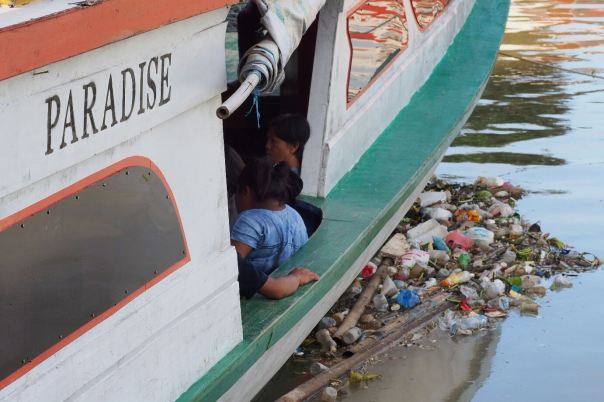
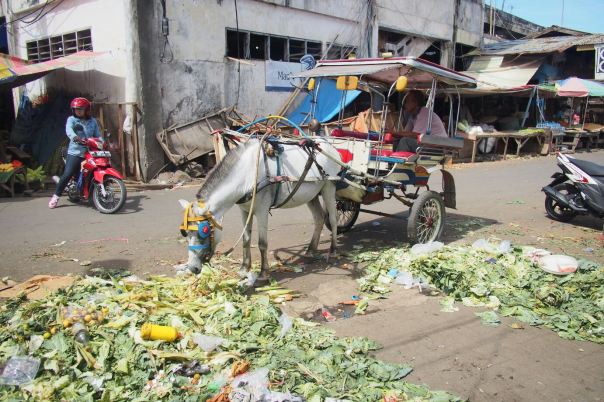
The never ending story…
Swimming alongside these majestic beings, I was reminded of that dog from The Never Ending Story. Not because they looked like dogs, but because they swam like that dude flew. Gliding and floating, I felt like all my Christmasses had come at once being able to get so close and accompany them until they inevitably outswam me.
After Surin, I had the snorkelling bug, but I wondered what a new place could realistically offer me. With the concentration span of a goldfish, surely I would be bored seeing the same old thing? It’s funny, but it never got old. All the new things we saw, and the things we had seen a hundred times before, held such a draw. Darlin’ it really is better down where it’s wetter…take it from me.
NOTES FOR TOURISTS:
– To get to Bunaken island, fly to Manado. Lion Air are the cheapest airline, but you might have fun and games trying to book with them! You may not be able to book on their website, add they don’t except visa or Mastercard. Rather go through tiket.com. Flying with them is also confusing as you get on and off flights like changing tubes, and quite often don’t know what is happening, but we had no major disasters with them and after we realised this was normal, it was funny more than anything else!
– Manado is quite expensive for accommodation. We stayed at Manado Grace Inn overnight, which was cheap (about £9), but about as basic as it gets.
– A taxi from the airport to this hotel cost us about £12 in the middle of the night. Cheaper options may be available during the day.
– You can get blue mini-bus taxis to the port of Sulawesi (near hotel Celebes) that you hop on and off. We had to change once. Ask locals for help – they are very friendly. It only cost about a pound each, but if you have lots of luggage, you may be charged more. In fact, these buses are TINY, so if you do have a lot of luggage, you may find it easier to get in a private taxi.
– Public boats leave from the port at around 2pm, but this is dependant on the tides and whether they are full or not. It only cost £2.50 each, but you may prefer to take a private boat if you can’t handle the smell or the waiting!
– Bunaken Sea Garden Resort is one of the best value with the best reviews. The staff were all very friendly and the food (included in the price) was good, although you might struggle if you don’t eat fish. They will pick you up from the Bunaken port if you book with them.
– The price of staying in a small bungalow with double bed was 44 euro (£35) for two sharing. This included three meals a day and drinks like juice, tea and coffee.
– Wifi wasn’t very good on the resort, but towards the end of our stay, they did get it working much better.
– We bought sim cards (Dtac have good reception in general) from a shop right next to the port, but again, we only had reception near the port of Bunaken, and not at the actual resort. Someone who spoke English helped us buy these as people in the shops don’t really speak English.
– The resort only has electricity in the evenings. Wiithout a fan, this place can get HOT, so it better to be out diving or snorkelling everyday.
– The Open Water Padi course took 3 days and cost around 395 euro (£310). I would advise anyone taking this course to do some studying beforehand, as the reading material is quite comprehensive.
– Snorkelling equiptment can be hired for 5 euro a day. You can head out by yourself, as we did on the first day (really do go in high tide!) or you can go on the boat with the divers for another 5 euro. I also did this, but I would imagine this is better if you are not the only snorkeller.


